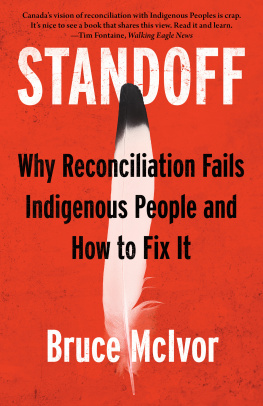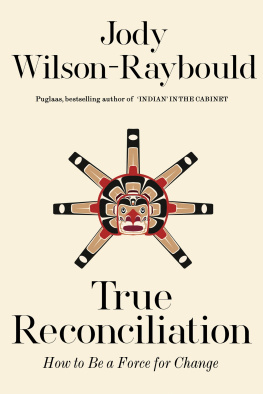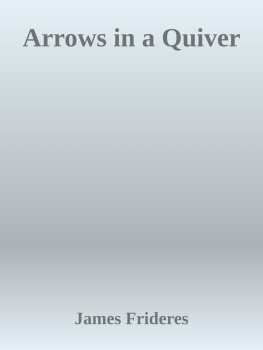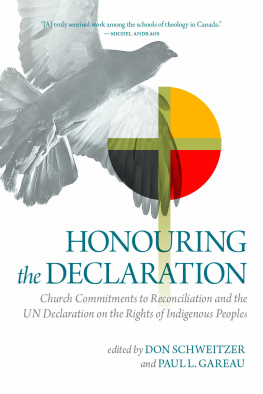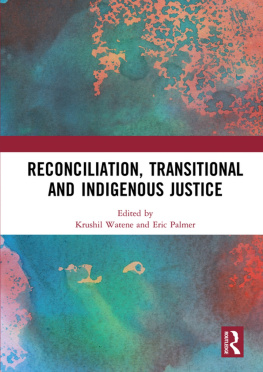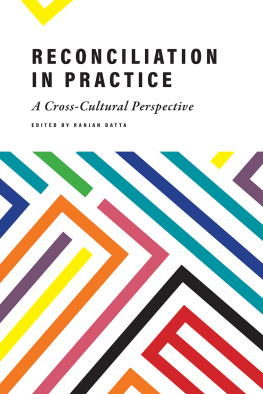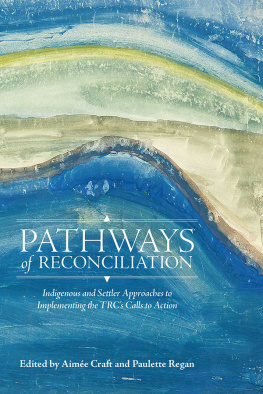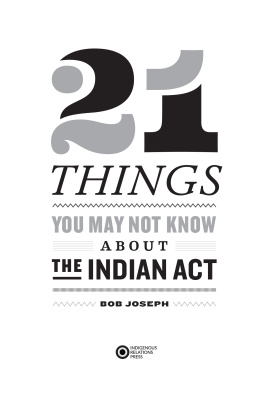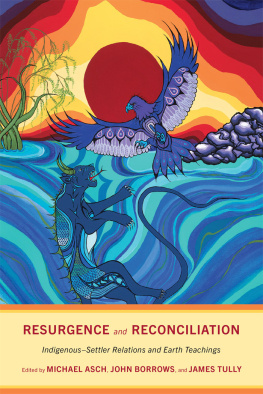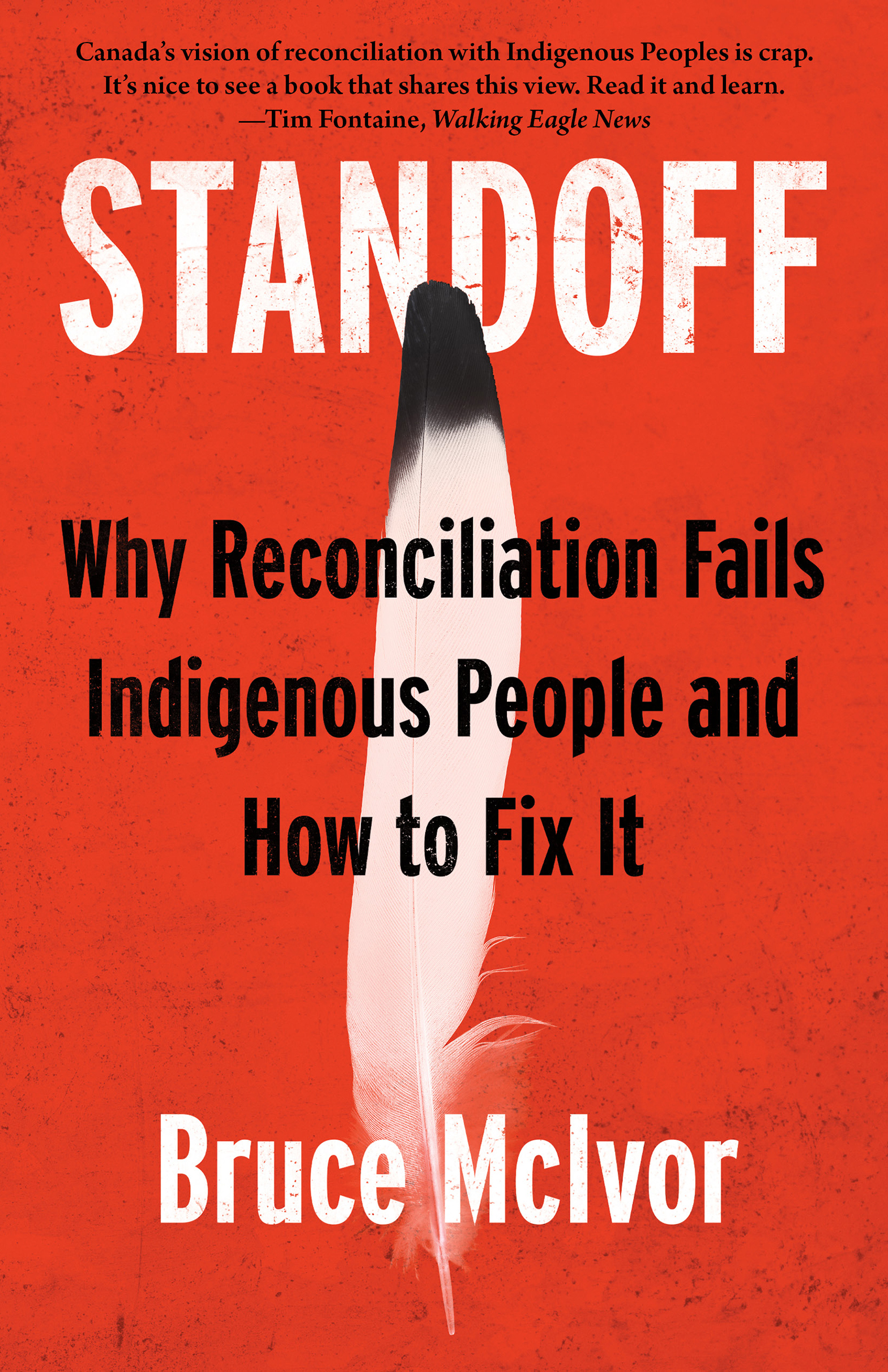Bruce McIvor - Standoff: Why Reconciliation Fails Indigenous People and How to Fix It
Here you can read online Bruce McIvor - Standoff: Why Reconciliation Fails Indigenous People and How to Fix It full text of the book (entire story) in english for free. Download pdf and epub, get meaning, cover and reviews about this ebook. year: 2021, publisher: Nightwood Editions, genre: Politics. Description of the work, (preface) as well as reviews are available. Best literature library LitArk.com created for fans of good reading and offers a wide selection of genres:
Romance novel
Science fiction
Adventure
Detective
Science
History
Home and family
Prose
Art
Politics
Computer
Non-fiction
Religion
Business
Children
Humor
Choose a favorite category and find really read worthwhile books. Enjoy immersion in the world of imagination, feel the emotions of the characters or learn something new for yourself, make an fascinating discovery.
- Book:Standoff: Why Reconciliation Fails Indigenous People and How to Fix It
- Author:
- Publisher:Nightwood Editions
- Genre:
- Year:2021
- Rating:5 / 5
- Favourites:Add to favourites
- Your mark:
Standoff: Why Reconciliation Fails Indigenous People and How to Fix It: summary, description and annotation
We offer to read an annotation, description, summary or preface (depends on what the author of the book "Standoff: Why Reconciliation Fails Indigenous People and How to Fix It" wrote himself). If you haven't found the necessary information about the book — write in the comments, we will try to find it.
Faced with a constant stream of news reports of standoffs and confrontations, Canadas reconciliation project has obviously gone off the rails. In this series of concise and thoughtful essays, lawyer and historian Bruce McIvor explains why reconciliation with Indigenous peoples is failing and what needs to be done to fix it.
Widely known as a passionate advocate for Indigenous rights, McIvor reports from the front lines of legal and political disputes that have gripped the nation. From Wetsuweten opposition to a pipeline in northern British Columbia, to Mikmaw exercising their fishing rights in Nova Scotia, McIvor has been actively involved in advising First Nation clients, fielding industry and non-Indigenous opposition to true reconciliation, and explaining to government officials why their policies are failing.
McIvors essays are honest and heartfelt. In clear, plain language he explains the historical and social forces that underpin the development of Aboriginal law, criticizes its shortcomings and charts a practical, principled way forward.
By weaving in personal stories of growing up Mtis on the fringes of the Peguis First Nation in Manitoba and representing First Nations in court and negotiations, McIvor brings to life the human side of the law and politics surrounding Indigenous peoples ongoing struggle for fairness and justice. His writing covers many of the most important issues that have become part of a national dialogue, including systemic racism, treaty rights, violence against Indigenous people, Mtis identity, the United Nations Declaration on the Rights of Indigenous People (UNDRIP) and the duty to consult.
McIvors message is consistent and powerful: if Canadians are brave enough to confront the reality of the countrys colonialist past and present and insist that politicians replace empty promises with concrete, meaningful change, there is a realistic path forward based on respect, recognition and the implementation of Indigenous rights.
Bruce McIvor: author's other books
Who wrote Standoff: Why Reconciliation Fails Indigenous People and How to Fix It? Find out the surname, the name of the author of the book and a list of all author's works by series.

